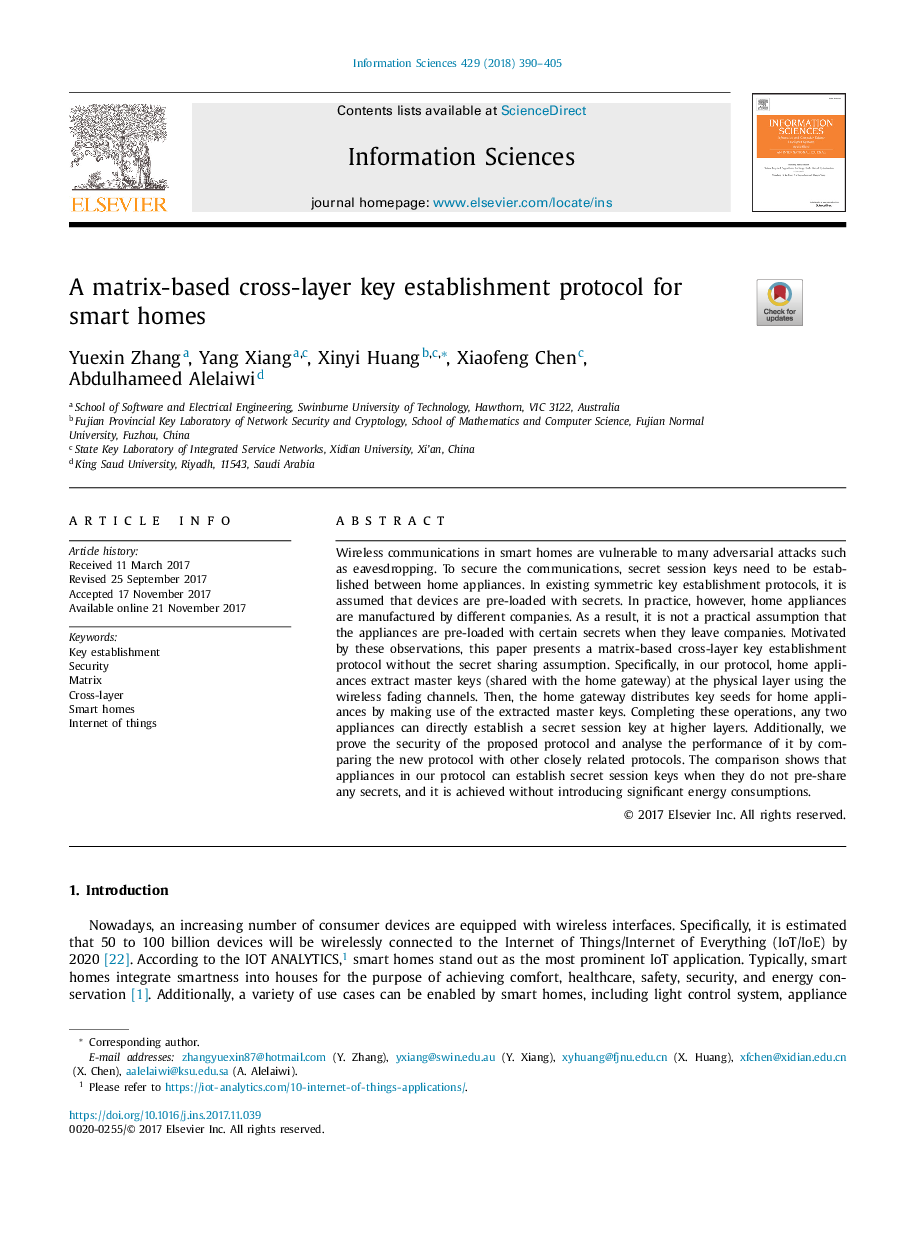| Article ID | Journal | Published Year | Pages | File Type |
|---|---|---|---|---|
| 6856964 | Information Sciences | 2018 | 16 Pages |
Abstract
Wireless communications in smart homes are vulnerable to many adversarial attacks such as eavesdropping. To secure the communications, secret session keys need to be established between home appliances. In existing symmetric key establishment protocols, it is assumed that devices are pre-loaded with secrets. In practice, however, home appliances are manufactured by different companies. As a result, it is not a practical assumption that the appliances are pre-loaded with certain secrets when they leave companies. Motivated by these observations, this paper presents a matrix-based cross-layer key establishment protocol without the secret sharing assumption. Specifically, in our protocol, home appliances extract master keys (shared with the home gateway) at the physical layer using the wireless fading channels. Then, the home gateway distributes key seeds for home appliances by making use of the extracted master keys. Completing these operations, any two appliances can directly establish a secret session key at higher layers. Additionally, we prove the security of the proposed protocol and analyse the performance of it by comparing the new protocol with other closely related protocols. The comparison shows that appliances in our protocol can establish secret session keys when they do not pre-share any secrets, and it is achieved without introducing significant energy consumptions.
Related Topics
Physical Sciences and Engineering
Computer Science
Artificial Intelligence
Authors
Yuexin Zhang, Yang Xiang, Xinyi Huang, Xiaofeng Chen, Abdulhameed Alelaiwi,
